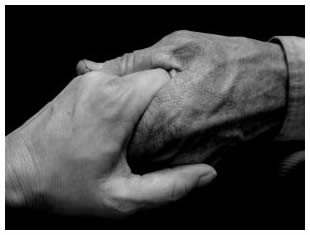 Many people find it uncomfortable to be around people who are upset, whether that person is grieving for a loved one, or going through a breakdown due to overwhelming pressures. But why do we sometimes find it so difficult to help those in distress, and how can we learn to be a better support to our friend in need?
Many people find it uncomfortable to be around people who are upset, whether that person is grieving for a loved one, or going through a breakdown due to overwhelming pressures. But why do we sometimes find it so difficult to help those in distress, and how can we learn to be a better support to our friend in need?
Whoever said: “A friend in need is a friend indeed” was right on the money. When things go wrong in your life, you very quickly find out who your real friends are. If you happen to suffer from an emotional problem, even one as common as the death of a family member, you will often be left breathless at the speed in which some of your friends will opt out for someone more fun to be with. On the other hand, a person who you may not have been particularly close to may be so wonderfully supportive, that a new and stronger friendship results from your hardship.
Paul Tillich, the German Lutheran minister who spent his final years in the U.S. stated:
The first duty of love is to listen
Surely, the greatest gift you can give to your distressed friend is your undivided attention. Listen. Let them talk freely about what is bothering them/how sad they are/how worried they feel. They need to express their feelings. When they cry, let them cry. Encourage them to keep crying by passing a box of tissues. They may have to tell their story over and over, and the best gift you can give them is to just simply listen.
A common response to being in the presence of a deeply upset person is to try to make them feel better by talking about other things. However, doing this is similar to putting the cart before the horse. In order for the person to truly feel better, they need to be able to express what the problem is. By letting the person talk it out, often solutions will present themselves, or at least, the person moves a little further through their grieving process. By giving the person permission to tell it like it is, the person is much more likely to feel better after a session of crying, talking, and problem solving. Then they can begin the long process of recovery.
Unfortunately, trying to distract the distressed person with all the latest gossip is only doing one thing. And that is making you feel better. And that is not the essence of being a good friend. Once the time for crying and releasing is over for that session, then comes the time for general chitchat. This process may have to be repeated again and again until the person has come to terms with the situation and has a direction to head in.
Learning to love a person enough to allow them to express their innermost fears and sorrows may be uncomfortable and even distressing for you, but you will come out a much stronger person, one able to deal with your own fears and grievings, as that is what is fueling your own uncomfortability.
And your friends will thank you for it forever!
Contact Beth McHugh for further information or assistance regarding this issue.

